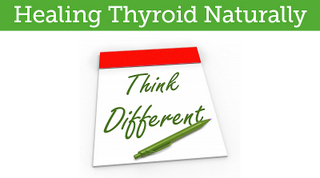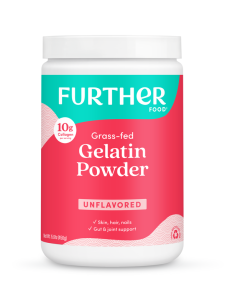Thyroid Testimony
THYROID ADRENAL CONNECTION
Do you or someone you know have hypothyroidism? Did this happen after a stressful event? If there is inadequate thyroid hormone, the adrenal glands are affected and if there are inadequate adrenal hormones, the thyroid is effected. Your adrenal glands are your main stress-adaptation gland (these are your “fight or flight” hormones) that push out adrenaline, epinephrine and nor-epinephrine … they are necessary for staying alive. BUT you only have so much of these hormones that you can use up each day.
In a constant state of stress, you will run out of these essential hormones and they will start to steal hormones from your thyroid or sex hormones.When your adrenal glands are overworked, your body converts progesterone into adrenal hormones. This depletes you of the progesterone you need for other functions such as estrogen balance (this causes estrogen dominance… belly fat). The thyroid and progesterone have a normalizing and anti-stress effect on the pituitary gland, which helps out the adrenals. When progesterone falls because it is being converted to the stress-fighting hormone, the thyroid suddenly has to take on the task of removing stress from the body.The thyroid governs your metabolism, the rate of which you burn fat (as well as brain and other essential body functions). If the adrenals are depleted, the thyroid will jump in to maintain a proper rate of adrenal hormone production. However, the endocrine system can’t handle this forever. Over time, the thyroid decreases hormone production to conserve energy.
At first, you may experience both thyroid and adrenal imbalance, but over time they will become problem-some for one gland… most likely the thyroid.There are several helpful nutrients that can help normalize thyroid function. If you doctor claims your thyroid is normal, you may not be converting T4 to the more potent T3 hormone.
Some things that can help are:
1. Kelp: Kelp is a large, leafy brown algae that belongs to the seaweed family and grows in the colder waters of the world’s oceans. It is a good source of marine minerals, including potassium, magnesium, calcium and iron. It is also an excellent source of iodine, which has been shown to support healthy thyroid function. Your thyroid gland is responsible for producing the hormones that support normal cellular metabolism. Kelp has also been used by homeopathic physicians in the treatment of obesity, poor digestion, flatulence, obstinate constipation, and to protect against effects of radiation. It is very beneficial to brain tissue, the membrane surrounding the brain, the sensory nerves, and the spinal cord. Click HERE to find.
2. L-Tyrosine: Tyrosine is an amino acid found in red meat and other animal products. Tyrosine can also be made by another amino acid, phenylalanine, but it needs iron for conversion. Many women lack iron because of heavy periods or uterine fibroids. They can’t make tyrosine and may end up with low thyroid function. People who have stress use more tyrosine to deal with stressors, which also leads to low thyroid. Low thyroid leads to low blood pressure, cold hands and feet, and restless leg syndrome. Take 1000mg twice daily on an empty stomach. Click HERE to find.
3. Ashwagahnda: This extract enhances thyroid function and produces a significant increase in T4 thyroid hormone. It also works with guggal to improve the conversion of T4 to the more active T3. Take 75-150mg one or two times daily. Click HERE to find.
4. GUGGAL: Supports complete thyroid health and enhances the conversion of T4 hormone to the more potent T3. Guggal and ashwagandha should always be used together as they have synergistic effects on the thyroid gland. Both boost thyroid without influencing the release of the pituitary hormone TSH. 90% of hypothyroidism are due to a problem with the thyroid gland itself and not the pituitary or an impaired conversion of T4 into T3 in tissues outside of the thyroid gland. Take 50-100mg one or two times daily. Click HERE to find.
Foods such as rapeseed (used to make canola oil), tapioca starch (cassava), sweet potatoes, lima beans, soy and pearl millet should be avoided if you have hypothyroidism. Out of this list only soy has been proven to promote hypothyroidism. Soy contains phytates, which bind to the minerals needed to make thyroid hormones. Avoid common “healthy” soy protein foods such as soy milk. However, when fermented, the phytates are deactivated. So soy products, like tempeh, miso are fine in moderation… but always choose organic due to the ‘genetically modified’ issues.
The mineral selenium is essential for thyroid health; which it is found mainly in Brazil Nuts, also in kelp, eggs, tuna, shellfish, organic beef liver, sunflower and sesame seeds, garlic and onions.
Disclaimer: Please always check with your doctor before adding supplements into your regime.














